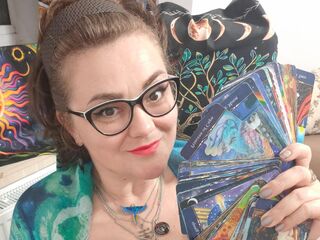Written By: Psychic AlyciaRose
Lughnassadh or Lughnasa (pronounced Loo-nas-ah), August 1st, is the first harvest festival in the Celtic and Neo-Pagan Year – of which eight sabbats is celebrated. Like all Celtic Fire Festivals, it begins on the eve of the actual day. Although it later became known as the Christian holiday of Lammas, it still survives in modern Gaelic as Lúnasa (Irish), Luanistyn (Manx), Lunasad or Lùnastal (Scottish) and Calan Awst (Welsh).
Lammas stems from the Anglo-Saxon word meaning ‘Loaf Mass’ since bread was made from the first grain (and the first loaves were blessed by the Church) – replacing the older tradition of offering the first sheaf cut to the Gods. Lugh was an important solar deity to the ancient Celts whose name means “shining one” and “nasad” is a tribal gathering for fairs and games.
Lugh is also known as a god of grain and harvest who dies annually with the reaping of the crop. He is the warrior of light inextricably bound with the Earth Goddess and must enter her dark womb to be reborn in the spring; thus conquering darkness. He is known as Lugh (Irish and Scottish), Lugus (Gaulish) and Lleu (Welsh). He is “Sam Ildanach,” “master of all skills” and is much like the Roman God, Mercury.
Many qualities of Lugh lived on in later tales of King Arthur as Lancelot. Lughnassadh pays tribute primarily to Tailltui in Irish beliefs. She is Lugh’s foster mother who died after clearing all the plains of Ireland for cultivation. Tradition holds that if the faire and games are not held in her honor, Lugh would take vengeance upon the crops in his grief.
Although the day is centered around the god Lugh, Lughnassadh is heavily associated with the Goddess of Sovereignty. Sovereignty has always been linked with the horse in Celtic beliefs. In the Coligney Calendar, this period falls between Equos, meaning “horse time” and Elembrios meaning “claim time.”
Two Goddesses equated with sovereignty and horses are Rhiannon and Epona; as both appear to stem from the Gaulish word rigantona meaning “great queen.” This was the time of the Wedding Feast of Kingship, Banais Rigi, the king’s marriage to the land – meaning he must receive his power from the Goddess to rule. In this, it better represents the ancient meaning of the day of Lugh in his guise as King. Other goddesses who are a part of Lughnassadh represent cultivation, birth and trials by ordeal.
The Goddess Macha is much like Tailltui (in that she died after attempting to accomplish a great feat) – racing on foot against a team of horses. It is also on Lughnasadh that horses were purified by being driven through water; in a race that was highly ritualized. This festival was traditionally celebrated on the tops of hills and mountains, representative of the goddess of the land, and usually one person symbolically represented the Sun (Lugh) climbed to its top.
The Óenach Tailten games of Ireland took place on Lughnassadh. Many ancient sports and athletic contests were held such as horse races, chariot races, footraces, driving cattle, hurley, Irish football, and sword-play. The games held at Tailltean were considered to be the “Irish Olympics.” The competitions, be they athletic or bardic, were often initiations. Many traditional contests of the faire later served to make the winners more attractive to potential marriage partners. There was also singing, storytelling, folk and sword dancing as part of the festivities.
After the 9th century the tradition of the Óenach Tailten gradually came to an end, and was later revived in the 20th century as the Tailteann Games. As recently as 1850, the hills of Carmarthenshire in Wales were crowded with weepers for Llew Llaw on the first Sunday on August. The practice was denounced as Pagan and discontinued, but the Welsh faire was kept. Today the Great Irish Horse Faires are still held, and the Puck Fair is held in the town of Killorglin, County Kerry, and is believed to be a continuation the old Lughnassadh festival. In many other areas the interest of old traditions has spurred a revival of Lughnassadh fairs for a new generation.
Lughnassadh celebrates not only the fertility of the field, but family, marriage and fertility rites celebrating Lugh and his bride. Trial marriages of a year and a day, also known as “Brehon Marriages,” were performed.
The term Tailten marriage has survived to modern times – referring to a casual love affair. One of the important aspects of Lughnassadh is of the tribe or clan bringing its members together, rather like a large family reunion – which are coincidentally often held by Irish families in summer.
Modern Pagans and Wiccans often celebrate with ceremony, bread (sometimes shaped as a man) and feasting. The god Lugh and other grain deities may be honored, as cultural harvest festivals are not unique.
Although an English 16th century song, it is the season of “John Barleycorn” – the grain harvest legend which enacts his sacrifice is an appropriate theme. Food, flower, grain or drink offerings may be placed or poured on the earth. In ritually giving back to the land, we ensure that the remaining harvest in our own lives will be plentiful. However, as we choose to celebrate it today, it should be remembered with thanksgiving for the harvest.
Many blessings.
Editor’s Note: Be sure to catch Alycia’s LIVE Stream show on Oranum every Wednesday from 3-6pm PDT.







1 Comment